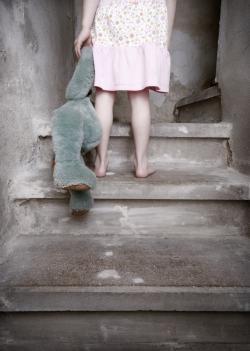“I wish my mother had aborted me.” It’s hard to think of a more provocative sentence, but an essay with that title popping up in various corners of the feminist blogosphere turns out not to be nearly as sensationalist as you’d think. Instead, Lynn Beisner, the pseudonymous author, offers a calm and compelling rebuttal to anti-abortion activists’ favorite rhetorical question: “Aren’t you glad your mother didn’t choose abortion?” Beisner is not. Her mother’s life was unquestionably worse after having a child, and Beisner herself had to suffer decades of poverty and abuse. They both would have been better off, she argues, if her mother had decided not to have her.
What’s remarkable about this piece is that it comes from a perspective not of despair or bitterness but of compassion. It’s not that Beisner is miserable and wants not to exist. Rather, she wishes her mother had had the resources to make a better decision “because I love her and want what is best for her.” Scores of commenters have shared similar stories, showing empathy even for mothers who were abusive, neglectful, or otherwise too damaged by their situations to be good parents.
That empathy underscores the importance of “choice” in “pro-choice.” Whereas anti-choicers like Rebecca Kiessling actively celebrate the fact that their mothers’ decisions were constrained by law or circumstances, pro-choicers like Beisner recognize their mothers as full human beings with agency and value beyond maternity. They envision fulfilling, coercion-free lives for their mothers, even if that means they would never have been born.
Beisner’s philosophy even applies to situations—like my own—in which no great agony is prevented. My life has not been particularly difficult, but I wouldn’t mind if my mother had had an abortion—there would be no me to do any minding. If she’d aborted me, she probably would have gone on to have different children, and they would have had just as much inherent human value as I do. In fact, it’s likely you know and love people like my mom’s hypothetical kids, who exist precisely because their mothers had abortions earlier in life. My alternate-timeline mother would have built her life the way she wanted, and no one, including me, would have been hurt.
Liberals tend to believe that all it takes to win a political argument is to coolly distribute facts and statistics, like a caterer with a tray of champagne glasses at a wedding. Facts are necessary, of course, but they’re watered-down Budweiser compared to stories like Beisner’s. People ignore numbers, but they don’t ignore “I wish my mother had aborted me.” As long as anti-choicers are spinning (sometimes obviously false) narratives about last-minute epiphanies and divine deliverance, we need people like Beisner to tell their own stories—even the deep, dark, painful ones—about the necessity of abortion for women’s equality.
